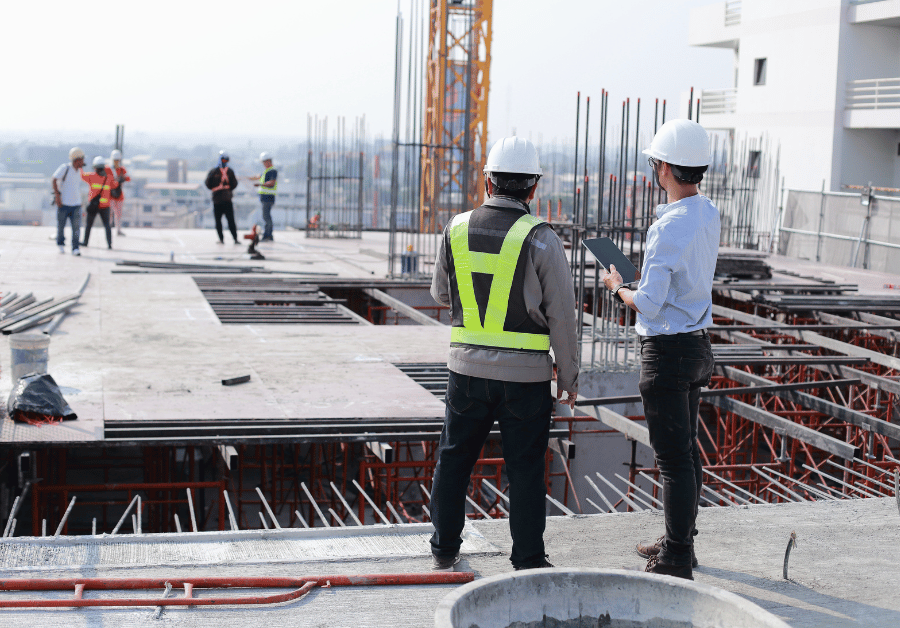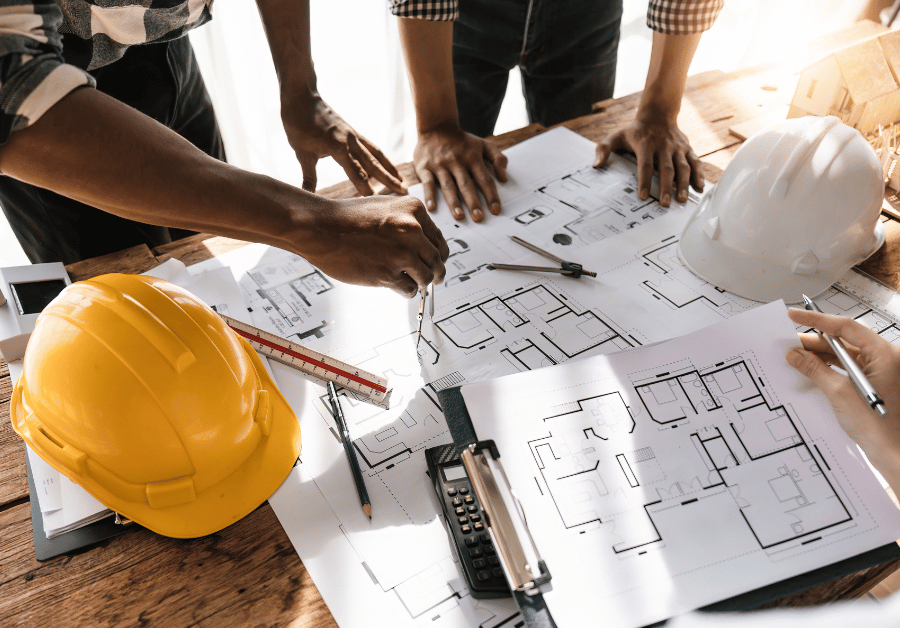Your Essential Guide to Finding a Structural Engineer in Australia
Are you seeing worrying wall cracks in your beautiful home? Planning a major renovation that involves knocking down a wall, or perhaps embarking on a brand-new building project? In Australia, especially in our diverse landscapes from Sydney's bustling urban sprawl to Perth's coastal plains, Brisbane's subtropical climate, Melbourne's varying soil conditions, Adelaide's heritage homes, and Hobart's unique topography, the integrity of your property's structure is paramount. This is where a skilled structural engineer becomes your most valuable ally.
Many homeowners and developers often ask, "What exactly does a structural engineer do, and when do I really need one?" This comprehensive guide aims to demystify the role of structural engineers, offering invaluable insights into their crucial work, especially in the Australian context. We’ll cover everything from identifying potential structural issues like cracking and movement, to understanding complex structural design for new builds, and even the specialised field of forensic engineering. Our goal is to empower you with the knowledge to make informed decisions and connect you with trusted local structural engineers across Australia.
What Exactly is a Structural Engineer? The Backbone of Australian Construction
At its core, structural engineering is a specialised branch of civil engineering. A structural engineer is a highly trained professional responsible for the design and analysis of buildings and other large structures to ensure they can withstand various forces – gravity, wind, earthquakes, and even the weight of people and furniture. Think of them as the architects of a building's skeleton, ensuring its strength, stability, and durability.
In Australia, every structural engineer must adhere to stringent national building codes and standards, such as the National Construction Code (NCC). They use their deep understanding of physics, materials science, and mathematics to specify the types and sizes of materials (like steel, concrete, timber, or masonry) needed for a project. Whether it's a multi-story high-rise in Melbourne, a coastal home on the Gold Coast, or a heritage renovation in Adelaide, the structural engineer ensures the structure is safe, efficient, and fit for purpose for decades to come.
Why is a Structural Engineer Indispensable for Your Australian Property?
The Australian landscape presents unique challenges for construction, from reactive soils in parts of Queensland and Victoria to cyclone-prone regions and bushfire-prone areas. These environmental factors, coupled with the sheer complexity of modern structural design, make the role of a structural engineer absolutely critical.
Here’s why engaging a qualified structural engineer is not just a good idea, but often a legal and practical necessity:
- Ensuring Safety: This is the primary concern. A structural engineer ensures your building is safe for occupants and will stand the test of time, preventing collapses or dangerous failures.
- Compliance with Regulations: Australian building regulations are strict. A structural engineer provides engineer reports and certifications that are essential for council approvals and compliance.
- Cost Efficiency: While it might seem like an added expense, expert structural design can optimise material use, reduce construction complexities, and prevent costly rework down the line.
- Problem Solving: When issues like cracking and movement appear, a structural engineer can diagnose the root cause and recommend effective solutions, from minor repairs to major underpinning work.
- Peace of Mind: Knowing your property has been assessed and approved by a professional structural engineer provides invaluable peace of mind.
Local Expertise Matters: Structural Engineers Across Australia's Major Cities
While the core principles of structural engineering are universal, local knowledge is paramount. A structural engineer Brisbane based will have extensive experience with the region's reactive clays and subtropical climate, impacting foundation design and storm resilience. Similarly, a structural engineer Sydney will be familiar with the city's diverse geology, from sandstone to fill, and the challenges of building in high-density areas.
Whether you're looking for residential structural engineers Melbourne for a period home renovation, or a structural engineer Perth for a new build on sand, choosing a local expert ensures they understand the specific site conditions, local council requirements, and common building practices in your area. This local insight is critical for accurate engineer reports and effective structural design.
When Do You Need to Call a Structural Engineer? Key Scenarios

It's not always obvious when to seek the expertise of a structural engineer. Here are the most common scenarios where their services are essential:
1. Investigating Cracks and Movement in Walls or Floors
This is perhaps the most common reason homeowners contact a structural engineer. Not all wall cracks are structural, but distinguishing between cosmetic and significant issues requires expert assessment. If you observe:
- New or widening cracks in brickwork or plasterboard.
- Cracks that extend through the entire wall thickness.
- Cracks around doors windows that cause sticking or misalignment.
- Uneven or sloping floors.
- Signs of subsidence or foundation movement.
A forensic structural engineer is your go-to professional for these situations. They conduct forensic site inspections, analyse the cracking and movement patterns, and provide detailed structural engineer reports diagnosing the problem and recommending remedial works, which might include underpinning or other foundation solutions.
2. Major Renovations and Alterations
Planning to remove a load-bearing wall, add an extension, or convert a roof space? Any alteration that impacts the primary load-carrying elements of your house requires careful structural design. A residential structural engineer will:
- Assess the existing structure's capacity.
- Design new beams, columns, or foundations to support the altered loads.
- Provide detailed drawings and specifications for builders.
- Ensure compliance with the NCC and local council requirements.
For example, if you're in Brisbane QLD and considering opening up your living space, a residential structural engineer Brisbane expert will ensure your plans are safe and structurally sound.
3. New Builds and Additions
From a single-story home to multi-story buildings, every new construction project needs a structural engineer. They are responsible for the entire structural design, from the foundation system (including options like screw pile underpinning or traditional concrete slabs) to the roofing system. Their involvement ensures the building's stability against all forces it will encounter throughout its lifespan.
4. Retaining Walls and Landscaping Projects
Retaining walls, especially those over a certain height or supporting significant loads (like a driveway or a swimming pool), require professional structural design. A structural engineer will design these walls to withstand soil pressure, water drainage, and other environmental factors.
5. Pre-Purchase or Pre-Sale Inspections
Before buying or selling a property, a structural engineer can conduct a thorough inspection to identify any existing or potential structural defects. This gives buyers peace of mind and sellers an opportunity to address issues before they become deal-breakers. These engineer reports are invaluable negotiation tools.
6. Underpinning and Foundation Repair
If a building is experiencing significant subsidence or foundation movement, underpinning may be necessary. This is a highly specialised repair process that a structural engineer must design and oversee. They will determine the most appropriate method, such as traditional concrete underpinning or modern screw pile underpinning product innovation.
To help clarify, here's a quick guide on who to call for what:
| Scenario | Who to Call First | Why |
|---|---|---|
| New House Build / Major Extension | Structural Engineer | Essential for safe and compliant structural design from the ground up. |
| Wall Cracks / Cracking and Movement | Forensic Structural Engineer | To diagnose the cause and recommend foundation solutions or repairs. |
| Removing a Load-Bearing Wall | Residential Structural Engineer | To design the necessary support structure. |
| Minor Cosmetic Repairs (e.g., small plaster cracks) | Builder / Plasterer | If confirmed non-structural, these trades can handle cosmetic fixes. |
| Building a Large Retaining Wall | Structural Engineer | For safe and stable design against soil pressure. |
Choosing the Right Structural Engineer in Australia: What to Look For

Finding the right structural engineer is crucial for the success and safety of your project. Here’s what to consider:
Qualifications and Registration
In Australia, it's vital to ensure your engineer is appropriately qualified and registered. Look for engineers who are members of Engineers Australia and hold Chartered Professional Engineer (CPEng) status, or are registered with their respective state boards (e.g., RPEQ in Queensland, NER or equivalent in other states). This ensures they meet high professional standards and have the necessary experience and expertise.
Experience and Specialisation
Does the structural engineer have experience with projects similar to yours? If you need a residential structural engineer for home alterations, look for someone with a strong portfolio in that area. If it's forensic engineering for cracking and movement, seek out forensic engineers with proven diagnostic skills. Firms like those you might find listed for structural engineer Brisbane or engineers Brisbane often specialise in specific areas, so ask about their expertise.
Local Knowledge
As mentioned, local conditions matter. A structural engineer familiar with the local soil types, climate, and council regulations in Perth will be better equipped to handle a project there than one whose primary experience is solely in Hobart.
Communication and Professionalism
A good structural engineer should be able to explain complex technical concepts in plain English. They should be responsive, provide clear engineer reports, and offer transparent pricing for their engineering services. Don't hesitate to ask for references or review past client testimonials.
The Process: What to Expect When Engaging a Structural Engineer
Once you’ve decided to engage a structural engineer, here’s a general overview of what the process usually involves:
- Initial Consultation: You’ll discuss your project or concerns. Be prepared to provide any existing plans, photos of wall cracks, or details of proposed alterations.
- Site Inspection: The structural engineer will visit your property to conduct a thorough assessment. This might involve visual inspection, taking measurements, and sometimes even using specialised equipment for forensic site analysis.
- Analysis and Design: Based on the inspection and your requirements, the engineer will perform calculations and develop structural design solutions. This is where their expertise in materials, loads, and building codes comes into play.
- Reporting and Documentation: You'll receive comprehensive structural engineer reports, drawings, and specifications. These documents are crucial for builders, council approvals, and ensuring the work is carried out correctly. For complex issues, like subsidence requiring screw pile underpinning, the reports will detail the methodology.
- Construction Support (Optional): Some structural engineers offer ongoing support during the construction phase, answering builder queries and conducting site visits to ensure adherence to their design.
It's important to make sure you understand the scope of services offered in their quote. A detailed engineer report is often the most valuable outcome, providing a clear path forward.
Ready to Connect with a Trusted Structural Engineer in Australia?
Whether you're dealing with puzzling wall cracks, planning ambitious renovations, or embarking on a new construction project, the expertise of a qualified structural engineer is non-negotiable for safety, compliance, and peace of mind. They are the guardians of your property's stability, ensuring it stands strong for generations.
Don't leave the integrity of your home or building to chance. At Get 3 Quote, we make it simple to find reliable, local structural engineers across Australia, including Sydney, Melbourne, Perth, Brisbane, Adelaide, and Hobart. Our platform connects you with verified professionals, allowing you to compare quotes, reviews, and profiles to choose the best match for your specific needs.
Get Your Free Quotes from Trusted Structural Engineers Today!
